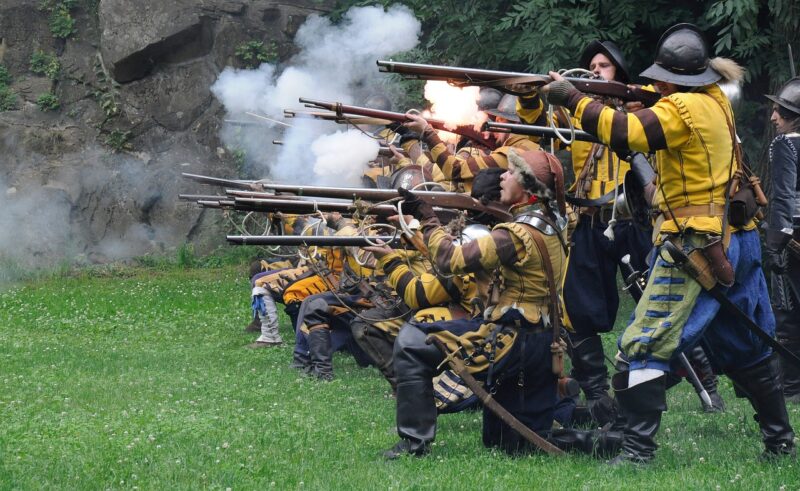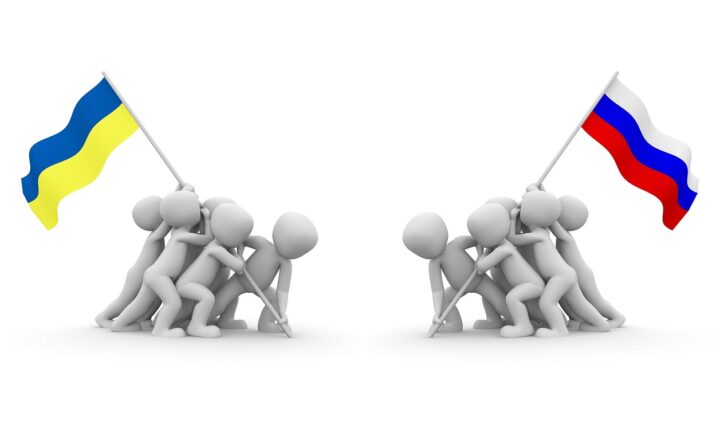Rethinking History: The Lesser-Known Conflicts That Altered the Course of Events
November 17, 2024

History is often told through the lens of grand wars and monumental battles—the kind of conflicts that dominate textbooks, documentaries, and popular discourse. Yet, alongside well-known events like World War I and II, countless smaller skirmishes, regional conflicts, and revolutions have played crucial roles in shaping nations and altering the trajectories of societies. This article explores some lesser-known conflicts that significantly impacted history, challenging the conventional narratives that tend to overlook them.
1. The Taiping Rebellion (1850-1864)
The Taiping Rebellion was a massive civil war in southern China led by Hong Xiuquan, who claimed to be the younger brother of Jesus Christ. The revolution arose in response to societal issues such as poverty, colonialism, and the corruption of the Qing dynasty. What began as a religious movement quickly developed into one of the deadliest conflicts in history, resulting in an estimated 20 to 30 million deaths.
The implications of the Taiping Rebellion were profound:
- It weakened the Qing dynasty, leading to increased foreign intervention and the eventual fall of imperial rule in the early 20th century.
- The rebellion also inspired various other uprisings and movements, including the Boxer Rebellion and the 1911 Revolution that overthrew the Qing dynasty.
Understanding the Taiping Rebellion helps us comprehend the sheer social upheaval China faced, which would resonate across its modern history.
2. The War of the Triple Alliance (1864-1870)
Fought between Paraguay and a coalition of Argentina, Brazil, and Uruguay, this conflict is one of the most devastating in Latin American history. With the aim to expand its territory and foster greater autonomy, Paraguay initiated a war that resulted in the deaths of an estimated 60% of its population and significant destruction in the region.
The War of the Triple Alliance reshaped the political landscape of South America:
- It marked the decline of Paraguay as a regional power and significantly increased the influence of Brazil in the continent.
- The conflict also prompted a reevaluation of military strategies and alliances throughout the region, leading to a more militarized approach in subsequent years.
The impact of this lesser-known war offers valuable insights into the complex history of nation-building in Latin America.
3. The Great Emu War (1932)
While it may seem humorous, the Great Emu War in Australia is a fascinating example of how unexpected conflicts arise over unexpected adversaries. After World War I, returning soldiers were given land to farm, but these lands were soon overrun by emus migrating from inland areas. In an attempt to cull the rising emu population, the Australian government deployed soldiers armed with machine guns, leading to a series of confrontations.
Despite their initial military might, the emus proved elusive, effectively outmatching the soldiers. The humorous nature of this conflict highlights several lessons:
- It sheds light on the complexities of wildlife management and agricultural policies.
- It serves as a reminder that not all conflicts are fought with rifles and cannons—sometimes they are fought against nature itself.
Although the Great Emu War resulted in failure for the Australian military, it continues to be a tongue-in-cheek topic for study in social sciences regarding human-animal relationships.
4. The Spanish-Cuban War (1895-1898)
Before the United States formally became involved in Cuba, a struggle for independence was already underway. The Spanish-Cuban War, also known as the Cuban War of Independence, saw Cuban revolutionaries fighting against Spanish colonial rule. This conflict ultimately led to U.S. intervention, which dramatically altered Cuba’s future.
Key outcomes from this engagement included:
- The Treaty of Paris (1898), which ended Spanish colonial rule in the Americas, and marked the rise of U.S. influence in the Caribbean.
- This war laid the groundwork for the Cuban-American War (Cuban Revolution) in the 1950s and the subsequent establishment of a communist regime under Fidel Castro.
The implications of this conflict reach far beyond the end of Spanish rule, influencing U.S. foreign policy in Latin America for decades to come.
5. The Nigerian Civil War (1967-1970)
Also known as the Biafran War, this conflict arose from ethnic, economic, and political tensions within Nigeria, mainly between the eastern region, which sought independence as Biafra, and the Nigerian government. The war resulted in a catastrophic humanitarian crisis, including widespread famine, claiming up to three million lives.
The ramifications of the Nigerian Civil War are still felt today:
- It highlighted the complexities of tribal identity and national unity in post-colonial Africa.
- The war and its aftermath influenced the way international organizations, such as the Red Cross, approached humanitarian crises and poverty alleviation strategies.
Thus, the Nigerian Civil War underscores the importance of understanding Africa’s internal conflicts within the broader context of colonial histories and modern governance.
Conclusion
Rethinking history means recognizing that not all pivotal changes arose from major wars or revolutions. Conflicts like the Taiping Rebellion, the War of the Triple Alliance, and even lighter engagements like the Great Emu War provide essential lenses through which we can analyze the complexities of societal shifts, government policies, and cultural transformations. As we delve deeper into these lesser-known conflicts, we can glean insights into how societies develop and adapt, shaping the world we live in today. By embracing this broader narrative, historians and readers alike can paint a more comprehensive picture of humanity’s past, acknowledging various struggles and victories that have fallen off the radar of popular memory.






